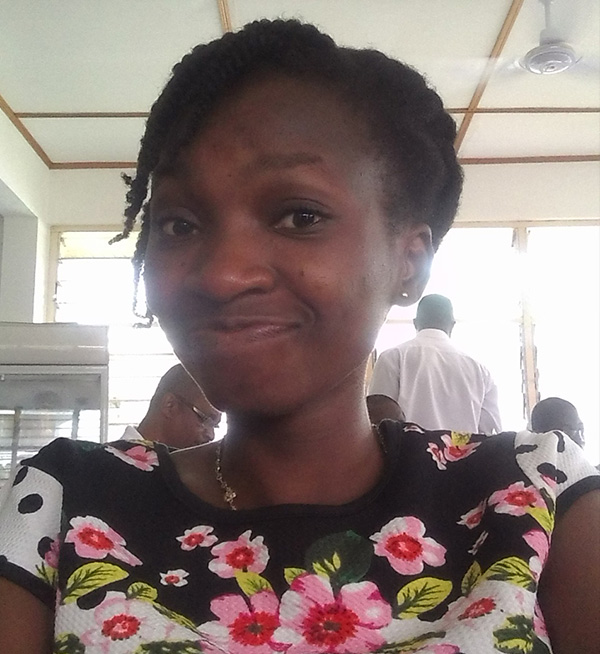
Program
MPhil Scientific Computing & Industrial ModelingGraduating Class of
2018Research Interests
Forensic Science and CryptographyDissertation(s)
Affiliate Institution
Kwame Nkrumah University of Science and TechnologyDegree Obtained
BSc. MathematicsEmail
asakyi@nims.edu.gh
Profile
Patience Aba Sakyi holds a Bachelor of Science degree in Mathematics from the Kwame Nkrumah University of Science and Technology, Ghana, obtained in July 2015. She is currently a postgraduate research student with the National Institute for Mathematical Sciences, Ghana, in the 'Scientific Computing and Industrial Modelling' programme.
Patience's interests lie in Computational Mathematics, with specific research interest in Data Science, Differential Equations for Forensic Pathology, Computational and Digital Forensics, and Cryptography. Her extracurricular and voluntary community contributions include indulging in community-based Mathematics education and awareness creation, with particular interest in whipping up the interest of girls and young ladies in Mathematics.
She hopes to be an integral part of the move to improve and increase national interest, and consequently performance, in Mathematics in Ghana.
Research Summary
Leachate quantity estimations have been done using Water Balance based models such as the Hydrologic Evaluation of Landfill Performance (HELP). To incorporate the heterogeneity of municipal solid waste (MSW) and the spatio-temporal variability in its behaviour, differential equations are preferred to simple algebraic equations that take the cumulative effect of inflows and outflows. The objective of this study was thus to estimate leachate quantities using Richards equation. The study employed the use of the advection-dispersion equation (ADE) to simulate the behaviour of the constituents of migrating leachate in the aquifer underlying the Dompoase landfill which is in the Ashanti Region of Ghana. The HYDRUS 1-D software was used to simulate the effect of reducing hydraulic conductivity values of MSW as the landfill ages.
Estimated leachate values showed that high precipitation values produced commensurate leachate quantities. Values from the advection-dispersion equation also showed that concentrations of chemicals present in migrating leachate reduce with space, as a result of dilution (dispersion) with the groundwater, hence the deeper a well bore is dug into an aquifer underlying a closed landfill, the less the concentration of potential leachate constituents will be. Waste moisture content and depth of infiltration of leachate are directly proportional to the hydraulic conductivity of the waste; since hydraulic conductivity of waste has been found to decrease with age of the landfill, enhanced recirculation techniques such as supplemental water addition can be delayed and adopted only as the landfill ages.
